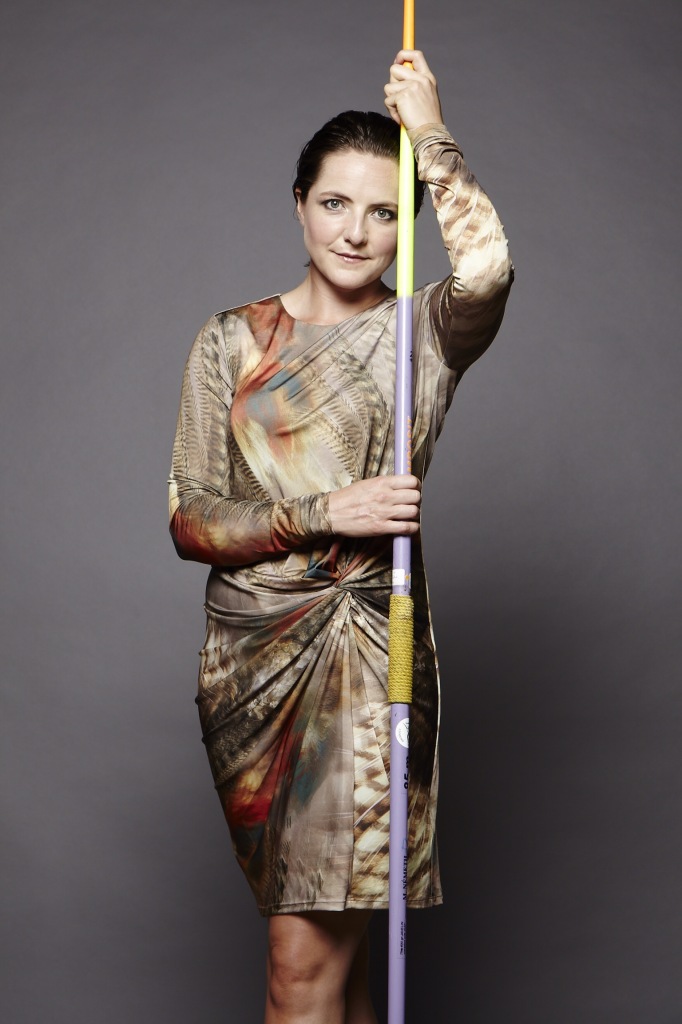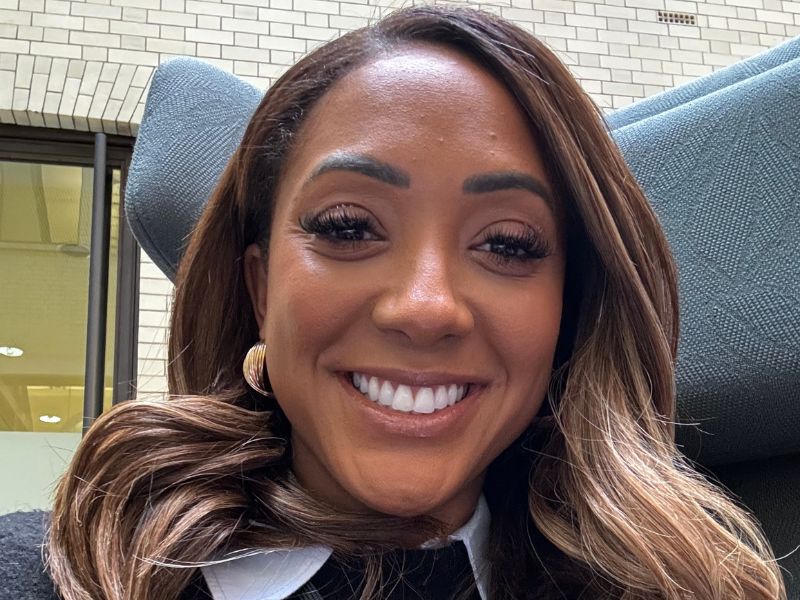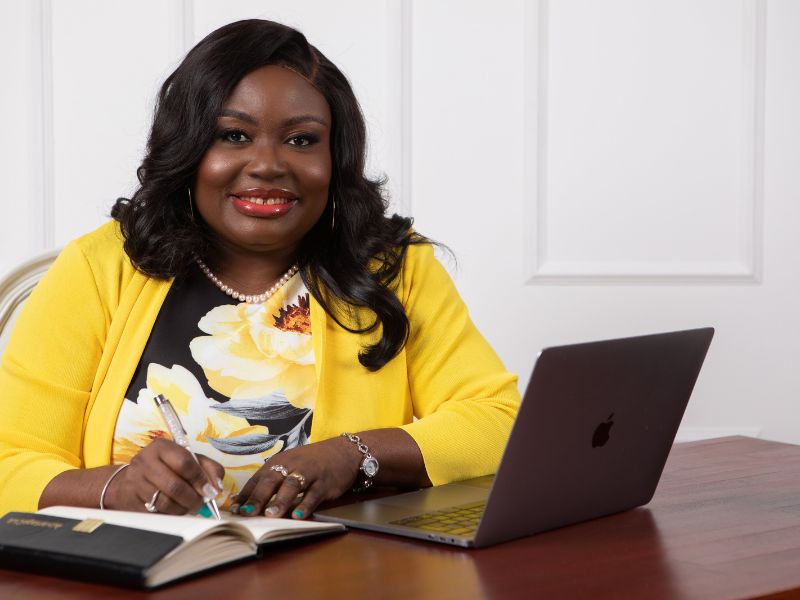 Three-time Olympian, World and European Championship finalist and UK Javelin Champion for the past eleven years, Goldie dominates her event and is one of athletics’ most popular ambassadors.
Three-time Olympian, World and European Championship finalist and UK Javelin Champion for the past eleven years, Goldie dominates her event and is one of athletics’ most popular ambassadors.
Tell us about yourself & your background
I was always a very sporty child and loved all teams sports. I wasn’t a huge fan of athletics as I was always entered into sprints and jumping events. I felt restricted by the lack of creativity in those events compared to ball games and team sports especially.
It wasn’t until I was 13 that I was handed a javelin to take home over the school Easter holidays as I was known for being able to throw a rounders ball a long way. That wouldn’t happen now for health and safety but I’m very glad that it did! I practised for hours in the garden trying to get this awkward implement to fly. I soon outgrew the garden and would cycle around trying to find larger fields to throw in. I was almost instantly hooked on the beauty and challenge of the event. I went back to school and was entered into the county schools competition which I managed to win. More importantly than winning, I was introduced to my first coach. A month later (after some more advanced technical input), I won the English Schools’ Championships. Eight years later I was walking out into an 80,000 seater capacity stadium at my first Olympic Games in Athens 2004.
I played county hockey, netball and tennis and was a national under-11 table tennis champion. I completed my degree whilst training for the Olympics and have since finished a Chartered Institute of Marketing Professional Diploma. I am an experienced speaker giving presentations on attitude, adversity, perseverance and leadership, to businesses such as Aviva, Deloitte and O2 as well as in schools to inspire the next generation. I coach and mentor quite a few young athletes and sit on the British Olympic Association’s Athlete Commission. I have a huge passion for high performance in any environment and getting the best out of people.
Passion for what you do is what gets you through the greatest adversity.
 In less than 10 years you have gone from the most junior member of Team GB to Captain. What advice can you give to our members about setting their sights on leadership roles? – If not you, then who?
In less than 10 years you have gone from the most junior member of Team GB to Captain. What advice can you give to our members about setting their sights on leadership roles? – If not you, then who?
Setting goals is hugely important. Writing them down makes you more accountable and often writing down WHY you want to achieve them is even more powerful. Everyone needs a raisin d’être. Look at where you want to be, what the gap between where you are now and where you want to be is and then find ways to get there. Within sport, you often don’t apply for roles but are head hunted or voted in.
I believe any good leader has to lead by example first and foremost. I am known to be very passionate about what I do personally but also about getting the best out of the rest of the team. I think the most powerful thing whether it be in business or in sport, is giving others our time. I make sure I spend time with the most junior athletes as well as the seasoned pros or Olympic champions. I can learn from every one of them and we can benefit each other.
Within an individual sport it is important to create a team environment at a Championship and most importantly let everyone know that they are appreciated whether they are working on team logistics, coaching athletes or winning medals for Great Britain. Everyone has a vital role to play. It is very easy to overlook the most common courtesy of just saying thank you and making people know that they are appreciated. This year at the European Championships I gave a speech to the team which was mentioned by a lot of the athletes in their post race interviews as having helped them produce their best performance. We achieved our best ever medal haul at a European athletics championships and to have been a part of creating history and enabling others to reach their potential was one of my proudest moments. I made sure I was as human and real as I could be within that speech. Having nearly had my career ended by a horrific elbow injury at the London Olympics, I talked about what I had learnt through the experience and the three operations and two years of rehab in order to get back to the highest level. Being an athlete is one of the best jobs in the world but it does come with a lot of pressure. I reminded the team to not take any of the experience for granted, to enjoy every moment – despite the nerves- as you would give anything to be standing on the start line if you weren’t there. My message was basically ‘how would you compete if it was the last time you got to do so.’ This can be applied to almost anything in life. It is easy to take what we experience as ‘normal’ for granted.
Patience and perseverance are key but whatever you do have control over, do it well.
How do you set goals and stick to them and how do you celebrate success?
Within athletics we have one major championships a year. One day where you have to be at your best. Everything I do on a daily basis from the start of winter training in October until the particular championships (for example the World Championships in August 2015) is planned and programmed. Obviously every plan has to be adaptable as nothing ever goes completely as you’d hope! However, without a plan it is almost impossible to hit targets. It is very important to review the plan and measure the success of it regularly. I find that because my goal of winning an Olympic medal in 2016 is so motivating for me (it has always been my dream), that sticking to any training program is not a problem. Training for five to six hours a day six days a week is not easy but I don’t believe it is a huge sacrifice when you are doing what you love. Passion for what you do is what gets you through the greatest adversity. The greatest satisfaction I get is making a plan and achieving what I set out to. The older I get, the more important it is to celebrate success as I have definitely experienced more failure than success!
I like to take my team out for dinner. When I’m successful, it is definitely a team effort so I make sure that those people know how much I appreciate their input.
You have been successful in a number of sporting fields, you are a classically trained musician and you have achieved a first class honours degree. What is your advice about time management and focus?
I am most definitely a do-er. I am pretty impatient and can’t bear procrastination so whatever I can do today in order to achieve my goals then I will do it even if I’m unable to do what I would like to through injury for example.
There is always something that you can do which will aid your performance. Peak performance in sport is usually about chipping away on a daily basis and doing everything you do to the best of your ability. There is a level of monotony about honing your craft as a sportsperson but it has to be done.
I love learning and think it is important to grasp any opportunity given to me.
Ultimately, it is down to me to develop myself in order to perform at my best. We can always improve in all areas of life but we can’t expect that to be done by others.
You have overcome injury that set you back. What guidance can you give our members about overcoming their own challenges and barriers to career success?
I have found that injury or set backs give us time to work on something that you wouldn’t ordinarily have the time or inclination to. I can usually find the positive in any situation and when things go wrong, there is no going back so you have to deal with the hand that you are dealt and get on with it. However, it is important to learn from mistakes and look into why something went wrong. Having brutally honest conversations with yourself or someone close to you is often necessary.
Patience and perseverance are key but whatever you do have control over, do it well. I have recovered from a lot of injuries (five operations in the last four years!). I do find that as long as your goal is big enough and really excites you then you will find a way around any barrier stopping you. If your goal doesn’t inspire you to get out of bed in the mornings then you will find any excuse not to achieve your true potential. The key, for me, is a goal that inspires me and a team of trusted people who buy into that dream and are willing to help me achieve it.
How important is it to take responsibility for your own development?
It’s vital. When I am standing at the back of the run up in front of 80,000 people and six billion TV viewers (at the Olympics), there is no one else I can rely on. Ultimately, it is down to me to develop myself in order to perform at my best. We can always improve in all areas of life but we can’t expect that to be done by others. It is absolutely our own responsibility to improve ourselves. Often self development requires help so it is important to ask for it. This has to be practised too and this is something that I have to get better at! Sometimes we need to be told what we need to improve on so it is important to be able to accept constructive criticism.
Ultimately I’m much like everyone else….I want a career that I love and a happy life.
What is the benefit of having a coach or a mentor?
I couldn’t do what I do without my coach. The coach is there to give regular feedback and my eyes when I’m training/competing. The coach-athlete relationship changes over the course of a sporting career. A coach starts out as a teacher and the relationship then develops into a more collaborative partnership as the athlete learns and matures. By the end of your career, you should be able to teach your coach a thing or too. A good coach should make the athlete as independent as possible and give him or her ‘the wings to fly’ themselves. Whilst I am a professional athlete, my coach is unpaid (apart from what I can afford to give him). It is a slightly ludicrous situation but athletics is still an amateur sport when it comes to coaching.
It is my belief that we should fund coaches as there will always be the talent in the system to develop. However, without coaches this talent cannot be developed. Funding is always uncertain so sponsorship is vital in order to have regular access to my coach. We are currently looking for sponsorship in the run up to Rio! I have a mentor (Steve Backley) and he helps challenge my thinking and planning and advises me in all sorts of areas. I think he can stop me making some of the mistakes that he might have made in his career and being someone who has achieved within the same field in an extraordinary way, I find him very inspiring. A mentor is the only short cut I have to success and his advice is very reassuring.
What are your plans for the future?
Over the next two years, my goal is to win an Olympic medal in Rio. After that, I will decide whether to carry on until the World Championships in London in 2017. A big part of me would love to walk off the track in the Olympic stadium having performed well as the last time I competed there (at the London Olympics), I ruptured my elbow ligament. I believe there is a nice symmetry in that aim and I would love to end my career in front of a home crowd.
Over the next two years I want to explore career options so that I have a new career to step into once I retire in two to three years time. If I could be a professional athlete forever I would be but unfortunately javelin is pretty tough on the body and sporting careers are sadly very short. I am very goal driven so a career in business seems logical. I would love to do something where I can try and get the best out of others as this is a passion of mine.
I enjoy corporate speaking work so I will probably carry on with that also. Ultimately I’m much like everyone else….I want a career that I love and a happy life.
For more information visit:
@goldiesayers








